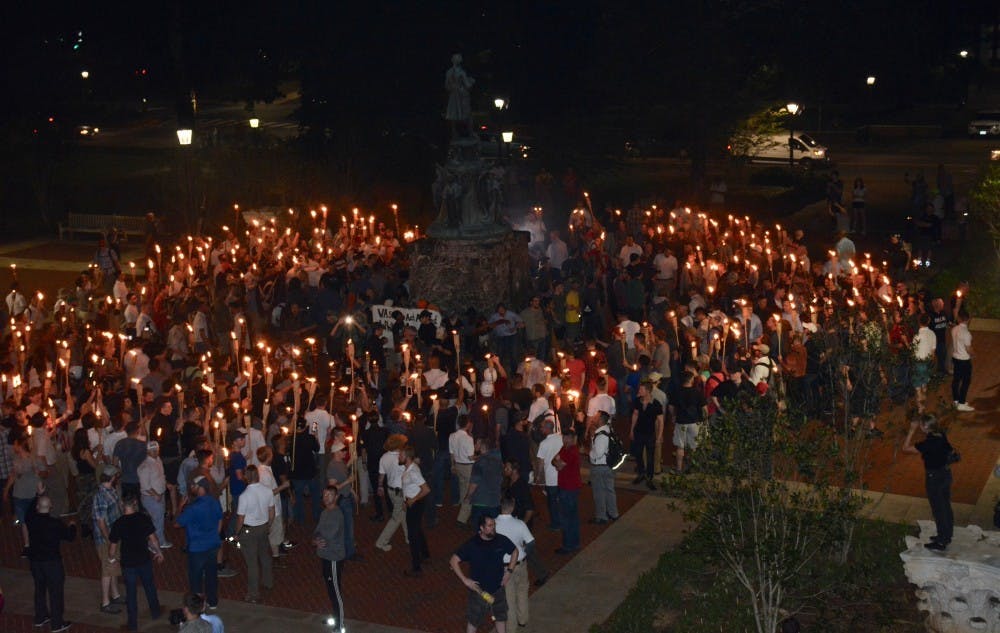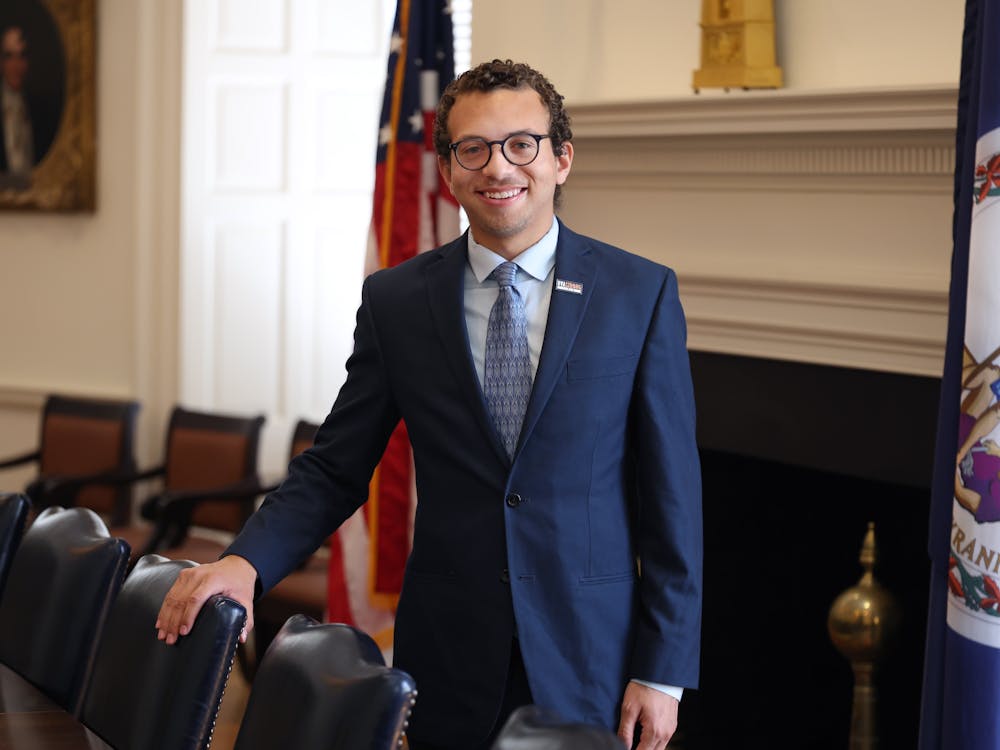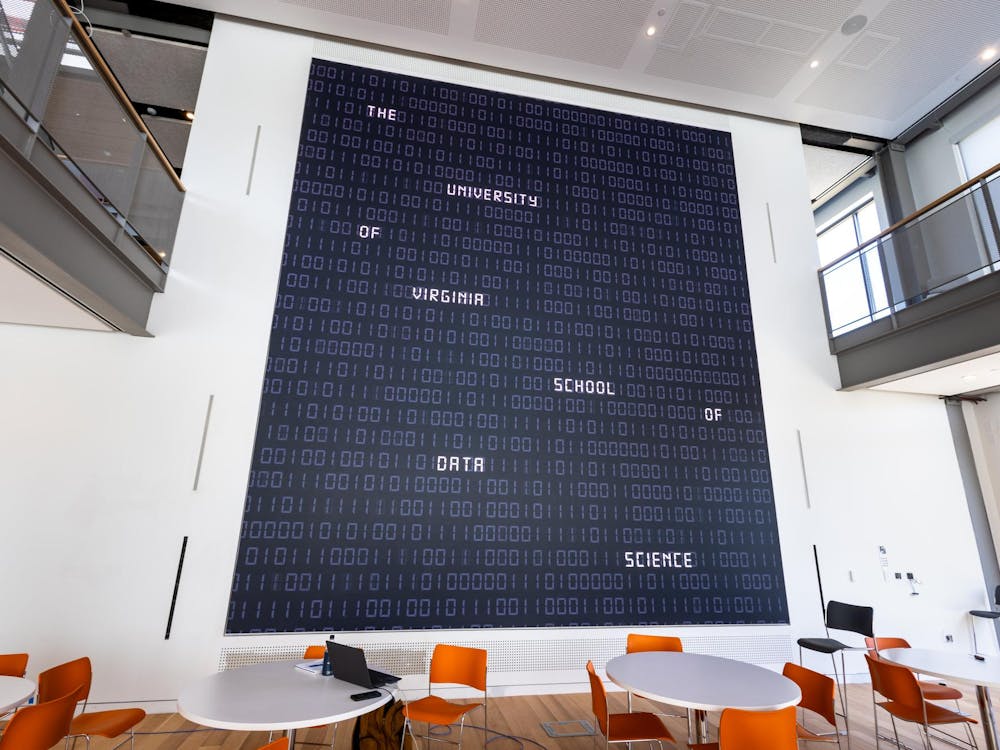The Cavalier Daily recently conducted a poll of University students to gather data on their thoughts concerning the recent white nationalist violence in Charlottesville, as well as the various responses of the University, city and student groups.
The poll was sent to a random sample of 6,102 students, of whom 1,621 responded. The poll was conducted between Sept. 9 and Sept. 11 and the margin of error is 2.38 percent. The data is weighted to reflect an accurate sample of the student population, weighted by race and in-state status.
The polling data shows a great majority of students — nearly 89 percent — think white nationalists’ actions during and after Aug. 11 and 12 had “gone too far.” Over half of the respondents said they think University President Teresa Sullivan should have used stronger words than “torch-bearing protesters” to describe white nationalists in her initial email following the Aug. 11 white nationalist torchlit march through Grounds.
A majority of students agreed with the decisions of the Charlottesville City Council regarding the Confederate statues in downtown Charlottesville. About 62 percent said they favored removing the statue of Robert E. Lee from Emancipation Park — a decision City Council voted in favor of earlier this year, but has since been unable to implement due to pending litigation.
Organizers of the Aug. 12 “Unite the Right” rally — which ultimately resulted in a car attack injuring at least 35 people and killing 32-year-old Heather Heyer — claimed their event was held to protest the removal of the statue.
About 67 percent of respondents also supported the city’s renaming of Lee and Jackson Parks to Emancipation and Justice Parks, respectively.
Students were also polled on the 10 demands that have been championed by the Black Student Alliance and numerous other student groups, including Student Council.
In terms of general support for the demands, after being presented with the text of each of the 10 demands, 59 percent of respondents said they agreed with them, 25 percent disagreed, and roughly 16 percent said they were not sure.
However, less than half of students — just over 40 percent — agreed with the demand to establish mandatory education “on white supremacy, colonization and slavery, as they directly relate to Thomas Jefferson, the University and the City of Charlottesville.” Another 41 percent of students disagreed with this demand, while roughly 10 percent said they had no opinion.
When asked about this specific demand in an interview on Tuesday, Sullivan said the University is currently beta-testing a module on implicit bias with 500 first-year students.
“What I’ve heard so far from the students who’ve done it is that they think it’s very good,” Sullivan said. “So I think another approach that we are considering is whether something like that module becomes a routine part of the preparation for first-year students and transfer students.”
When asked about the demand to balance the University’s historical landscape through recontextualizing the statue of Thomas Jefferson north of the Rotunda with a plaque and renaming buildings “named after prominent white supremacists, eugenicists, or slaveholders,” just under 44 percent of respondents said they disagreed with this demand. About 37 percent said they agreed and about 17 percent said they did not know or had no opinion.
This statue was the site of where the white nationalist torchlit march turned violent on Aug. 11. Student protesters also demonstrated at the statue Tuesday evening, where they shrouded the statute and carried signs, including one that read, “Thomas Jefferson is a racist and a rapist.”
A strong majority of those polled — about 78 percent — agreed that the Lawn should be declared a residential space that should not allow open flames or concealed arms. This is a move that has been supported by the Deans Working Group, which was tasked with evaluating the University’s response to recent white nationalist events. About 13 percent of respondents disagreed, and roughly seven percent said they did not know or had no opinion about this demand.
The University has faced criticism by student groups and community members over perceived inaction and lack of preparation by University Police in response to the events of Aug. 11. A report and timeline released Monday by the Deans Working Group concluded that the University had been operating on “incomplete intelligence” and that the University Police “over-relied on the information the [march] organizers provided, which turned out to be deliberately misleading and ultimately inaccurate.”
About 46 percent of poll respondents said they disapproved of how the University Police Department handled the white nationalist torchlit march. Just under 31 percent said they were not sure and about 23 percent said they approved of how UPD managed the situation.
As for whether University students are satisfied with the University administration’s response since Aug. 11 and 12, about 44 percent of respondents said they were satisfied, just under 37 percent said they were not sure and just over 19 percent said they were dissatisfied.
Managing Editor Tim Dodson contributed reporting.
This article has been updated with more information about the polling methodology.







